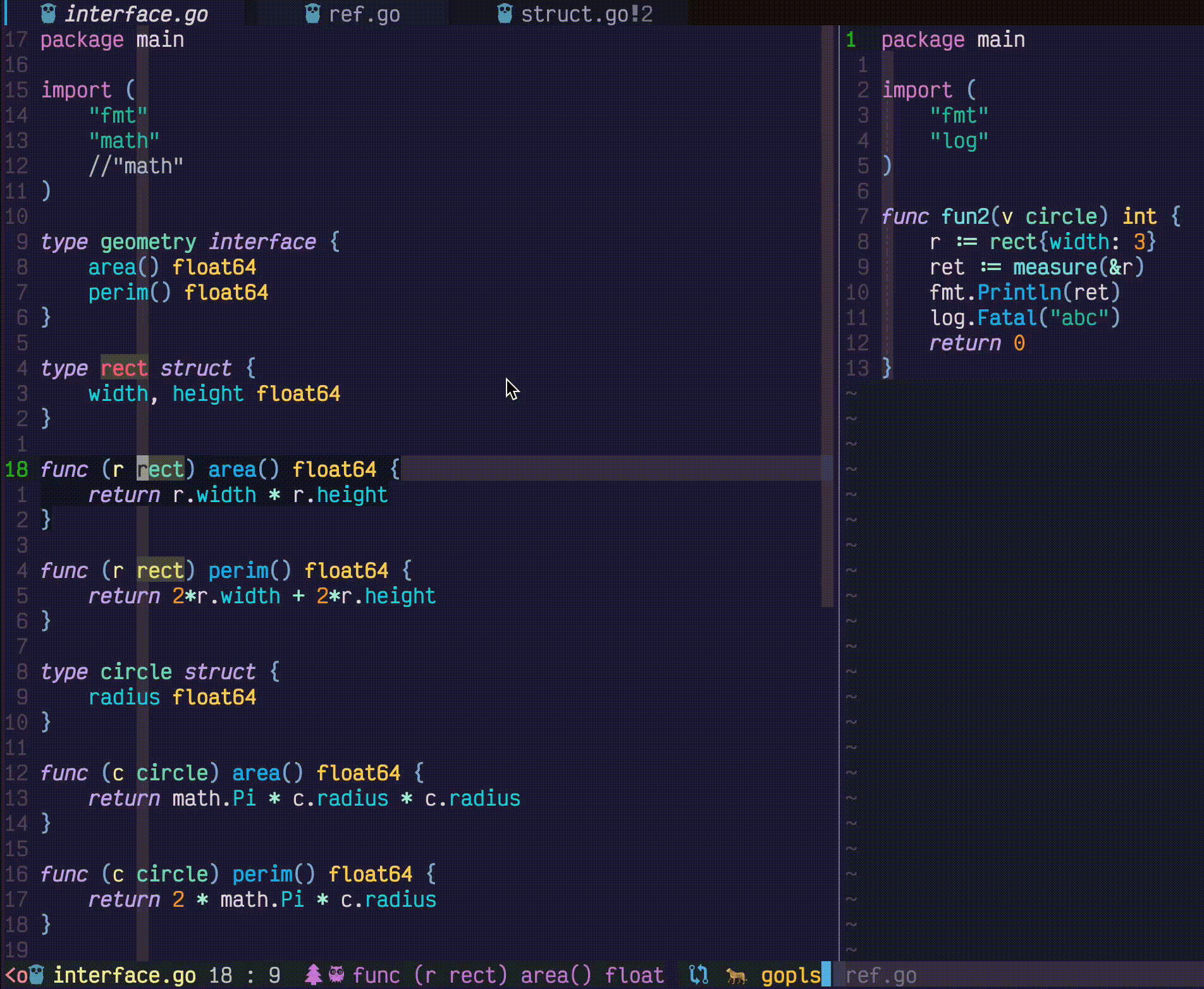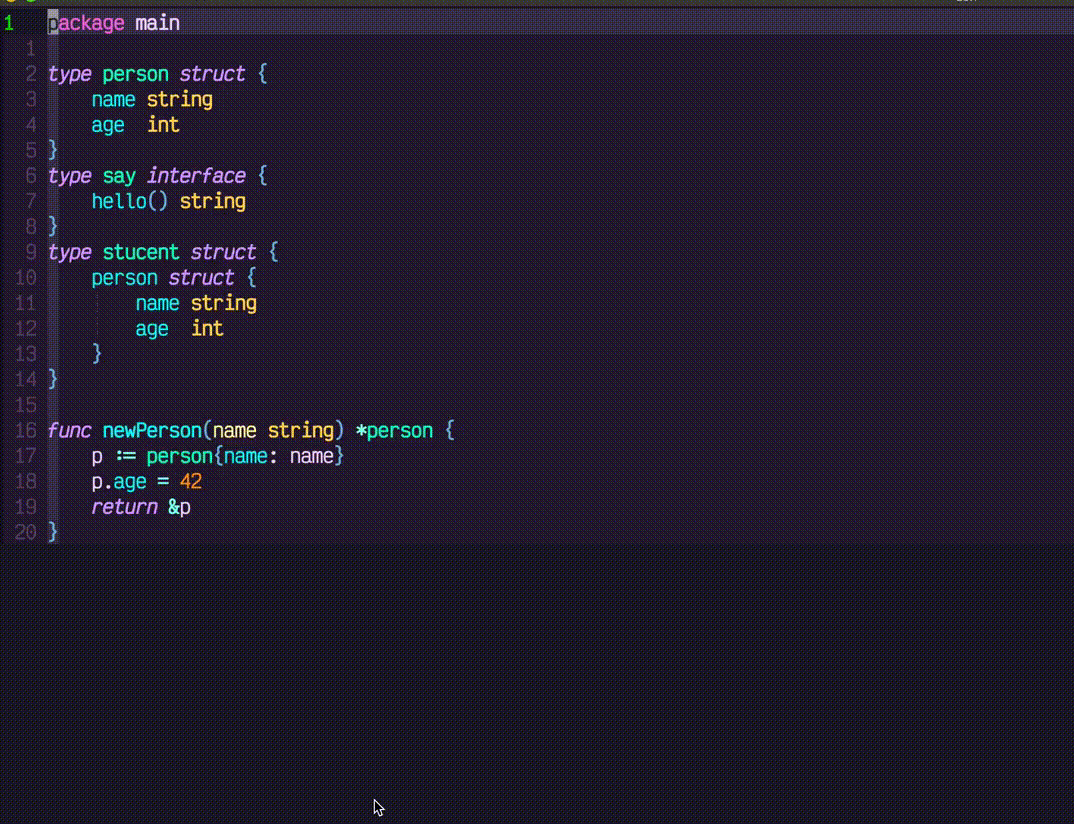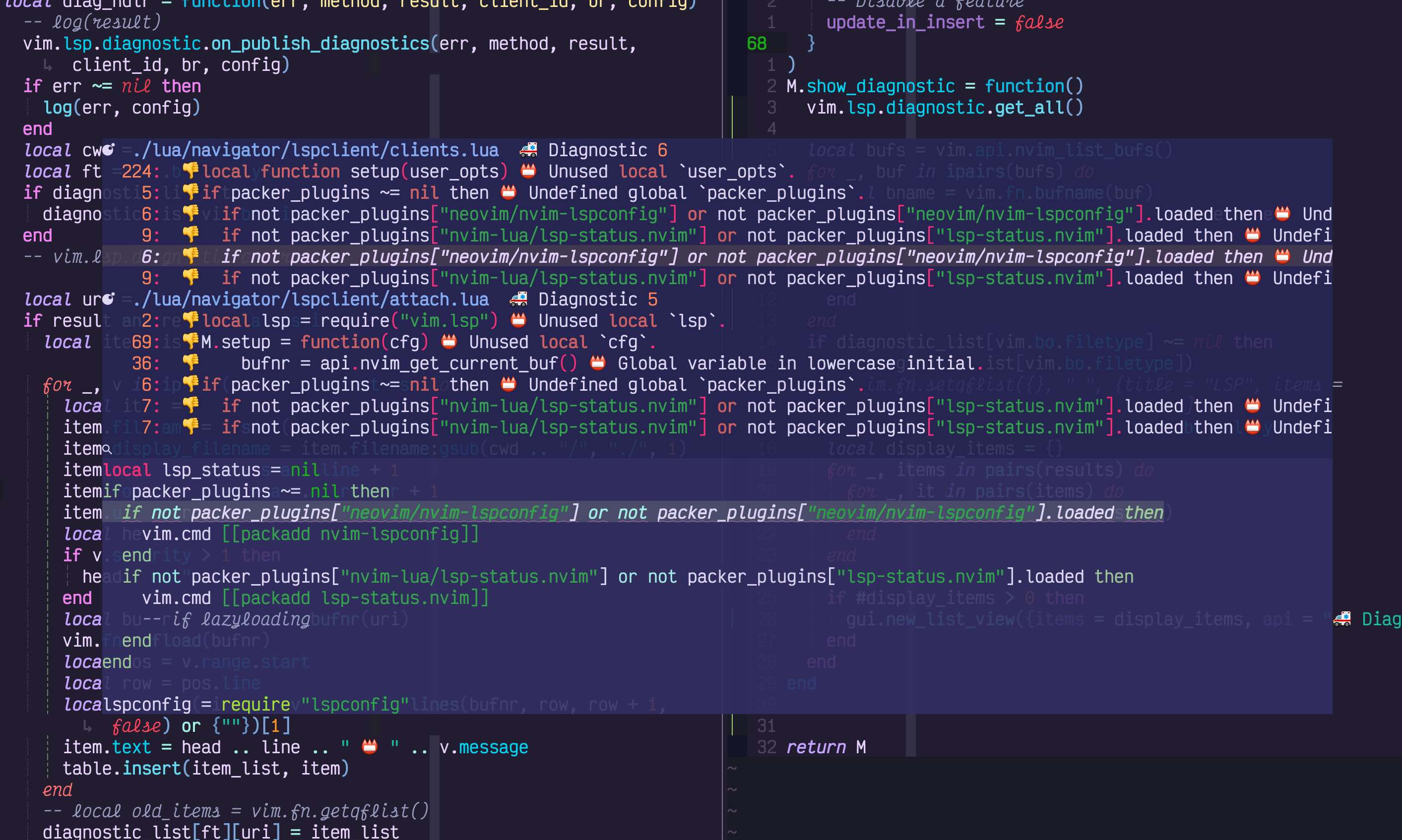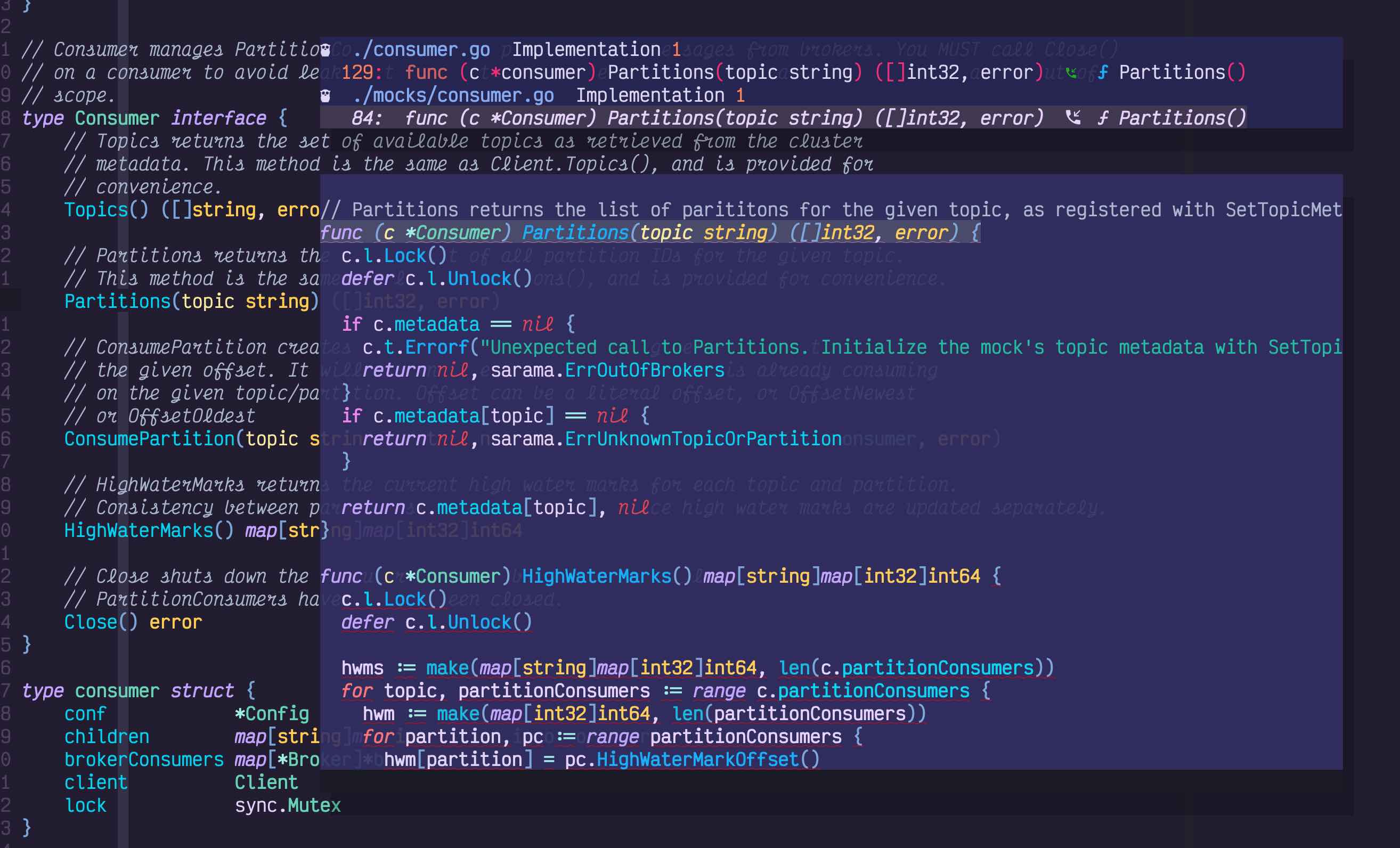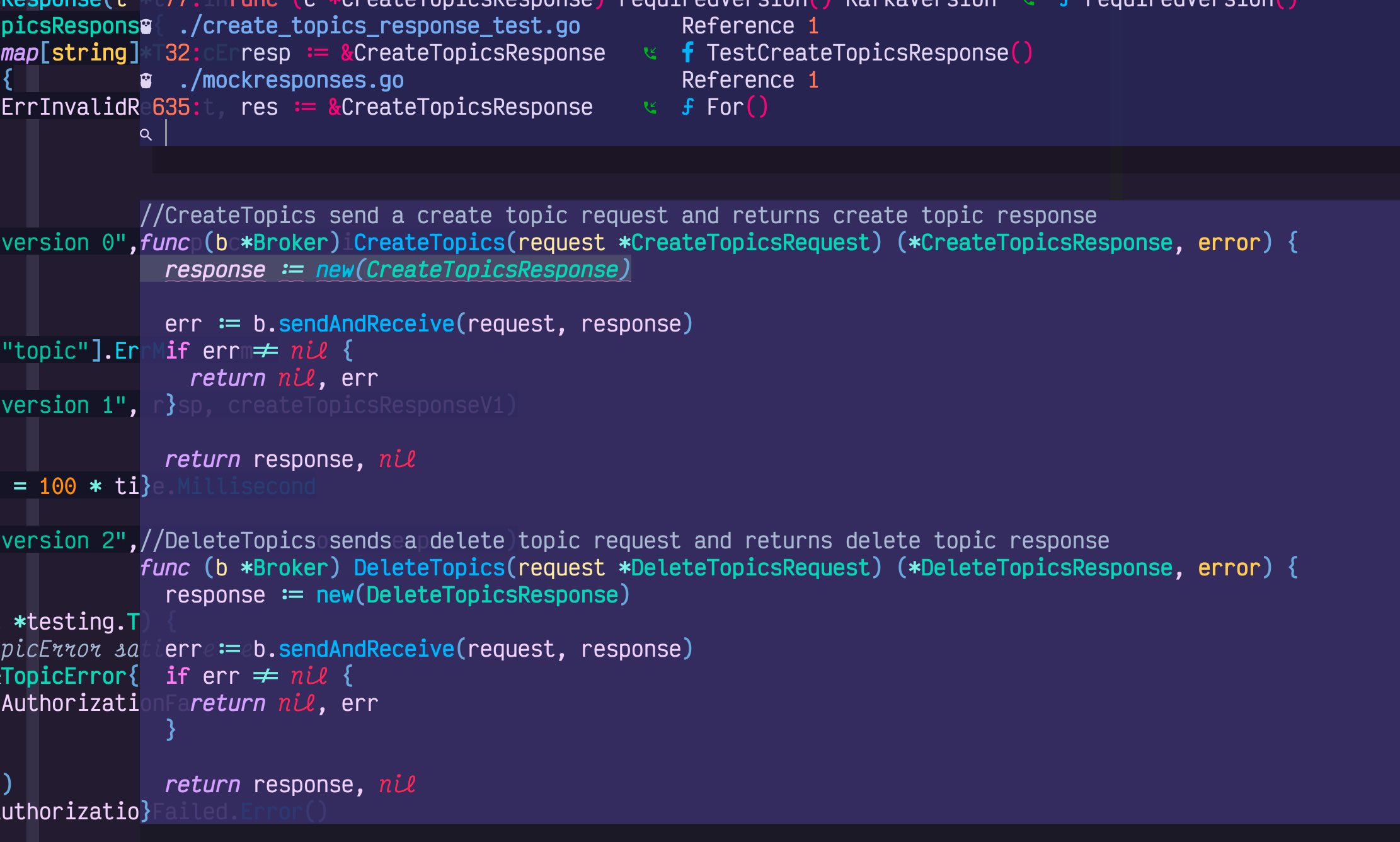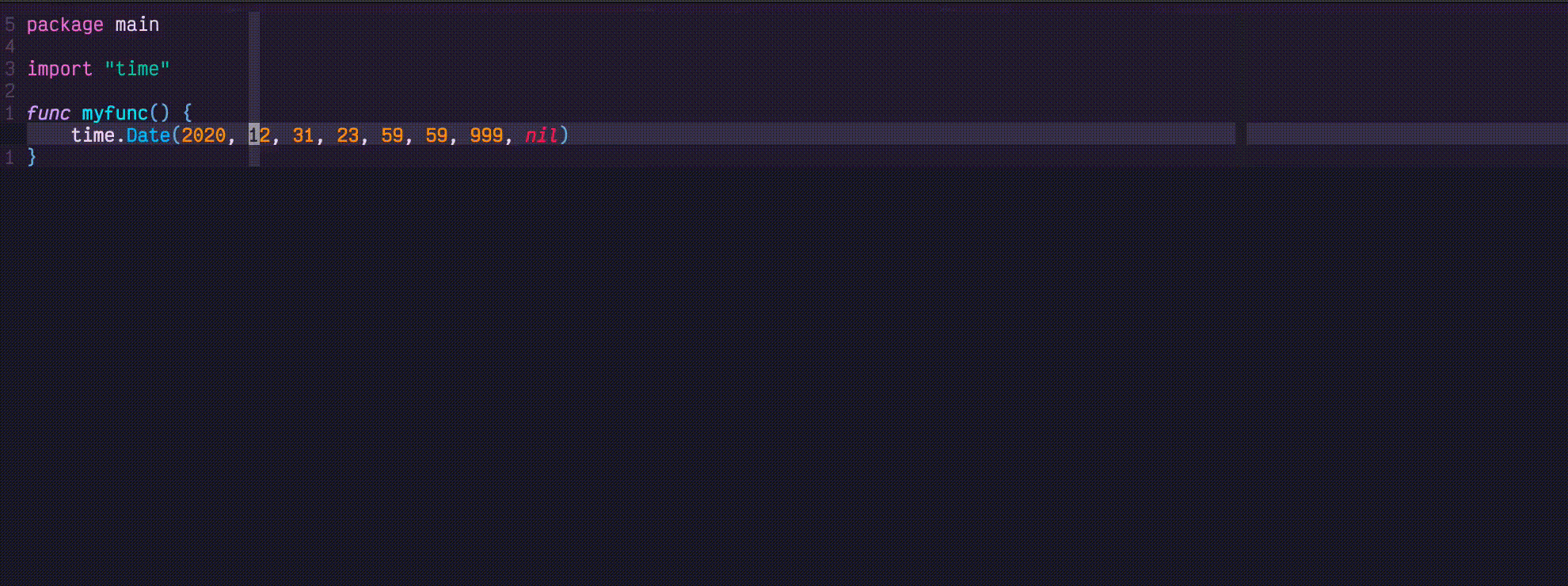12 KiB
Navigator
-
Easy code navigation, view diagnostic errors, see relationships of functions, variables
-
A plugin combines power of LSP and 🌲🏡 treesitter together. Not only provids a better highlight but also help you analyse symbol context effectively.
Here are examples
Example: Javascripts closure
The following screenshot shows javascript call tree 🌲 of variable browser insides a closure. This feature is similar to incoming & outgoing calls from LSP. It is designed for the symbol analysis.

Explanation:
- The first line of floating windows shows there are 3 references for the symbol browser in closure.js
- The first reference of browser is an assignment, an emoji 📝 indicates the value changed in this line. In many cases, we search for references to find out where the value changed.
- The second reference of
browseris inside functiondisplayNameanddisplayNamesit insidemakeFunc, So you will seedisplayName{} <- makeFunc{} - The third similar to the second, as var browser is on the right side of '=', the value not changed in this line and emoji is not shown.
Example: C++ defination
Another example for C++
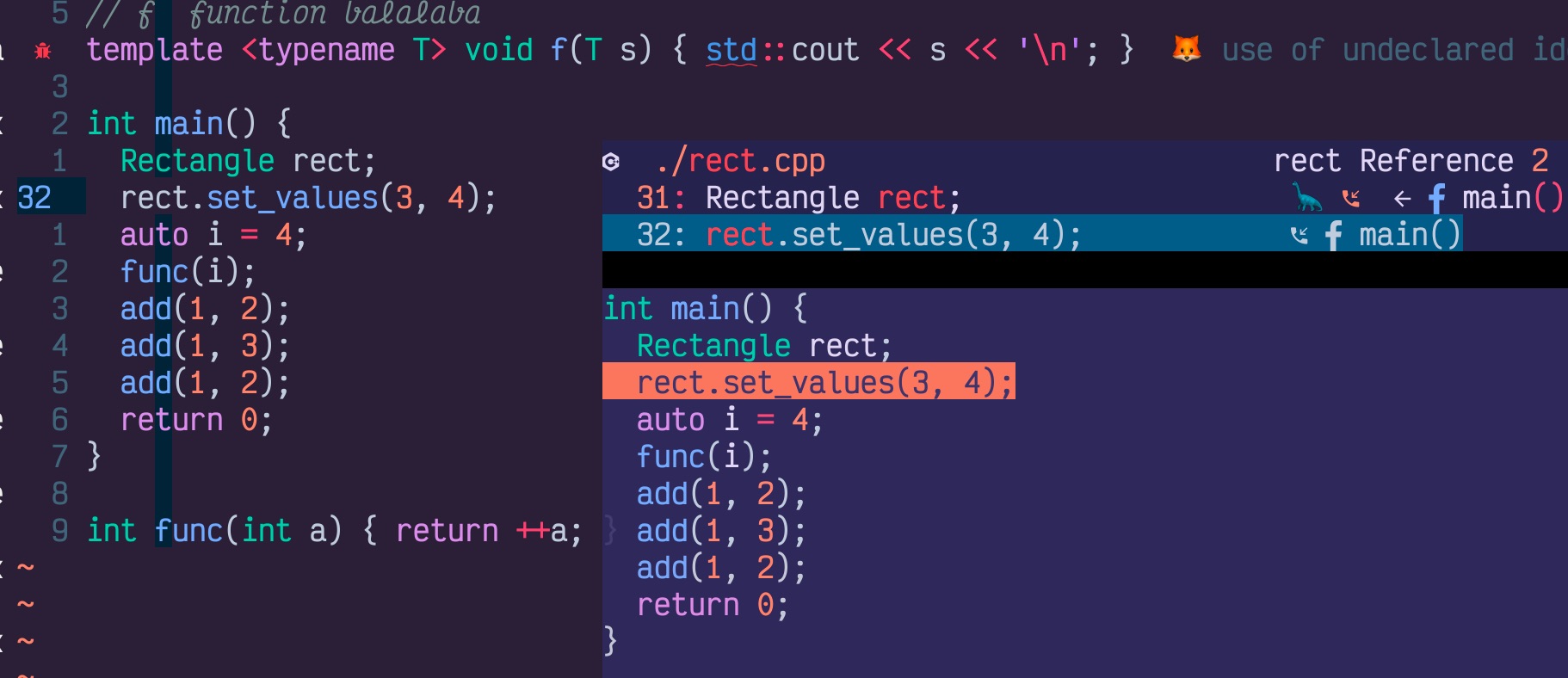 You may find that a 🦕 dinosaur(d) on the line of
You may find that a 🦕 dinosaur(d) on the line of Rectangle rect; which means there is a defination (d for def) of rect in this line
Golang struct type
Struct type references in multiple Go ﳑ files
This feature can provide you info in which function/class/method the variable was referenced. It is handy for large project where class/function definition is too long to fit into the preview window. Also provides a birdview of where the variable is
- Referenced
- Modified
- Defined
- called
Features:
-
LSP easy setup. Support the most commonly used lsp clients setup. Dynamic lsp activation based on buffer type. This also enables you to handle workspace combine mixed types of codes (e.g. Go + javascript + yml)
-
Out of box experience. 10 lines of minimum vimrc can turn your neovim into a full-featured LSP & Treesitter powered IDE
-
Unorthodox UI with floating windows, navigator provides a visual way to manage and navigate through symbols, diagnostic errors, reference etc. It covers all features(handler) provided by LSP from commonly used search reference, to less commonly used search for interface implementation.
-
Async request with lsp.buf_request for reference search
-
Treesitter symbol search. It is handy for large files (Some of LSP e.g. sumneko_lua, there is a 100kb file size limition?)
-
FZY search with Lua-JIT
-
Better navigation for diagnostic errors, Navigate through all files/buffers that contain errors/warnings
-
Grouping references/implementation/incoming/outgoing based on file names.
-
Treesitter based variable/function context analysis. It is 10x times faster compared to purely rely on LSP. In most of the case, it takes treesitter less than 4 ms to read and render all nodes for a file of 1,000 LOC.
-
The first plugin, IMO, that allows you to search in all treesitter symbols in the workspace.
-
Nerdfont, emoji for LSP and Treesitter kind
-
Optimize display (remove trailing bracket/space), display the caller of reference, de-duplicate lsp results (e.g reference in the same line). Using treesitter for file preview highlighter etc
Why a new plugin
I'd like to go beyond what the system is providing.
Similar projects / special mentions:
- nvim-lsputils
- nvim-fzy
- fuzzy
- lspsaga
- fzf-lsp lsp with fzf as gui backend
- nvim-treesitter-textobjects
Install
Require nvim-0.5.0 (a.k.a nightly)
You can remove your lspconfig setup and use this plugin. The plugin depends on lspconfig and guihua.lua, which provides GUI and fzy support(migrate from romgrk's project).
Plug 'neovim/nvim-lspconfig'
Plug 'ray-x/guihua.lua', {'do': 'cd lua/fzy && make' }
Plug 'ray-x/navigator.lua'
Note: Highly recommened: 'nvim-treesitter/nvim-treesitter'
Packer
use {'ray-x/navigator.lua', requires = {'ray-x/guihua.lua', run = 'cd lua/fzy && make'}}
Setup
Easy setup BOTH lspconfig and navigator with one liner. Navigator covers arounds 20 most used LSP setup.
lua require'navigator'.setup()
Sample vimrc turning your neovim into a full-featured IDE
call plug#begin('~/.vim/plugged')
Plug 'neovim/nvim-lspconfig'
Plug 'ray-x/guihua.lua', {'do': 'cd lua/fzy && make' }
Plug 'ray-x/navigator.lua'
" Plug 'hrsh7th/nvim-compe' and other plugins you commenly use...
" optional, if you need treesitter symbol support
Plug 'nvim-treesitter/nvim-treesitter', {'do': ':TSUpdate'}
call plug#end()
" No need for rquire('lspconfig'), navigator will configure it for you
lua <<EOF
require'navigator'.setup()
EOF
You can remove your lspconfig.lua and use the hooks of navigator.lua. As the navigator will bind keys and handler for you. The LSP will be loaded lazily based on filetype.
Nondefault configuration example:
require.'navigator'.setup({
debug = false, -- log output not implemented
code_action_icon = " ",
width = 0.75, -- number of cols for the floating window
height = 0.3, -- preview window size, 0.3 by default
on_attach = nil,
-- put a on_attach of your own here, e.g
-- function(client, bufnr)
-- -- the on_attach will be called at end of navigator on_attach
-- end,
-- The attach code will apply to all LSP clients
treesitter_analysis = true, -- treesitter variable context
sumneko_root_path = vim.fn.expand("$HOME") .. "/github/sumneko/lua-language-server",
sumneko_binary = vim.fn.expand("$HOME") ..
"/github/sumneko/lua-language-server/bin/macOS/lua-language-server",
code_action_prompt = {enable = true, sign = true, sign_priority = 40, virtual_text = true},
lsp = {
format_on_save = true, -- set to false to disasble lsp code format on save (if you are using prettier/efm/formater etc)
tsserver = {
filetypes = {'typescript'} -- disable javascript etc,
-- set to {} to disable the lspclient for all filetype
},
gopls = { -- gopls setting
on_attach = function(client, bufnr) -- on_attach for gopls
-- your special on attach here
-- e.g. disable gopls format because a known issue https://github.com/golang/go/issues/45732
print("i am a hook, I will disable document format")
client.resolved_capabilities.document_formatting = false
end,
settings = {
gopls = {gofumpt = false} -- disable gofumpt etc,
}
}
}
})
The plugin can work with multiple LSP, e.g sqls+gopls+efm. But there are cases you may need to disable some of the
servers. (Prevent loading multiple LSP for same source code.) e.g. I saw strange behaviours when I use pyls+pyright+pyls_ms
together. If you have multiple similar LSP installed and have trouble with the plugin, please enable only one at a time.
To disable a LSP server, set filetypes to {} e.g.
require.'navigator'.setup({
pyls={filetype={}}
})
Dependency
- lspconfig
- guihua.lua (provides floating window, FZY)
- Optional:
- treesitter (list treesitter symbols, object analysis)
- lsp-signature (better signature help)
The plugin can be loaded lazily (packer opt = true ), And it will check if optional plugins existance and load those plugins only if they existed.
The terminal will need to be able to output nerdfont and emoji correctly. I am using Kitty with nerdfont (Victor Mono).
Usage
Please refer to lua/navigator/lspclient/mapping.lua on key mappings. Should be able to work out-of-box.
- Use <c-e> or
:q!to kill the floating window - <up/down> (or <c-n>, <c-p>) to move
- <c-o> or <CR> to open location or apply code actions. Note: <CR> might be bound in insert mode by other plugins
Configuration
In navigator.lua there is a default configuration. You can override the values by passing your own values
e.g
-- The attach will be call at end of navigator on_attach()
require'navigator'.setup({on_attach = function(client, bufnr) require 'illuminate'.on_attach(client)})
Screenshots
colorscheme: aurora
Reference
Pls check the first part of README
Document Symbol
Workspace Symbol
Current symbol highlight and jump backward/forward between symbols
Document highlight provided by LSP.
Jump between symbols between symbols with treesitter (with ]r and [r)

Diagnostic
Diagnostic in single bufer
Show diagnostic in all buffers
Implementation
Fzy search in reference
Code actions
Fill struct with gopls
Code preview with highlight
Treesitter symbol
Treetsitter symbols in all buffers
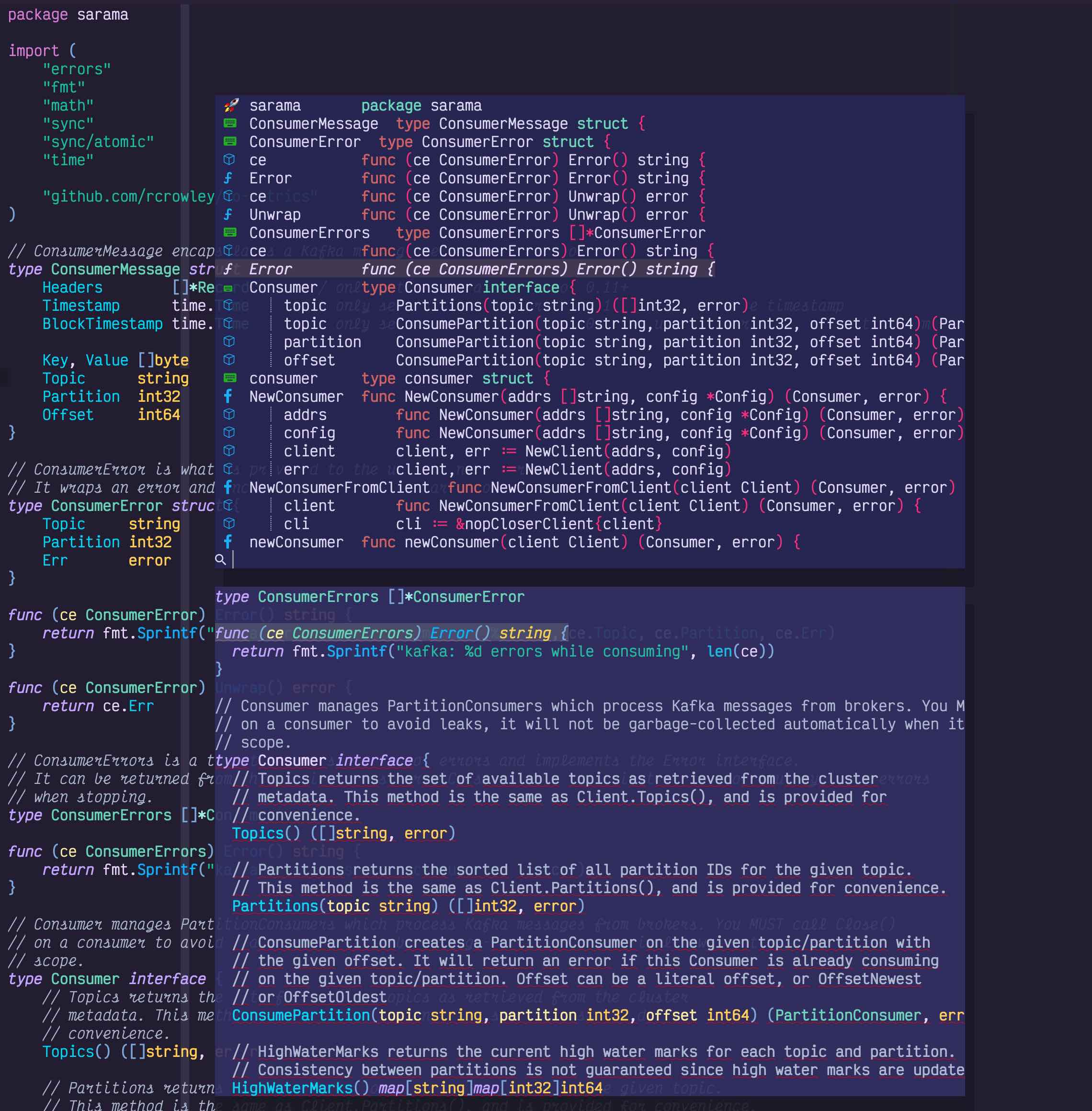
Signature help
Improved signature help with current parameter highlighted
Call hierarchy (incomming/outgoing)
Light bulb if codeAction available
Predefined LSP symbol nerdfont/emoji
Break changes and known issues
Todo
- The project is in the early phase, bugs expected, PRs and suggestions are welcome
- Async (some of the requests is slow on large codebases and might be good to use co-rountine)
- More clients. I use go, python, js/ts, java, c/cpp, lua most of the time. Did not test other languages (e.g dart, swift etc)
- Configuration options
